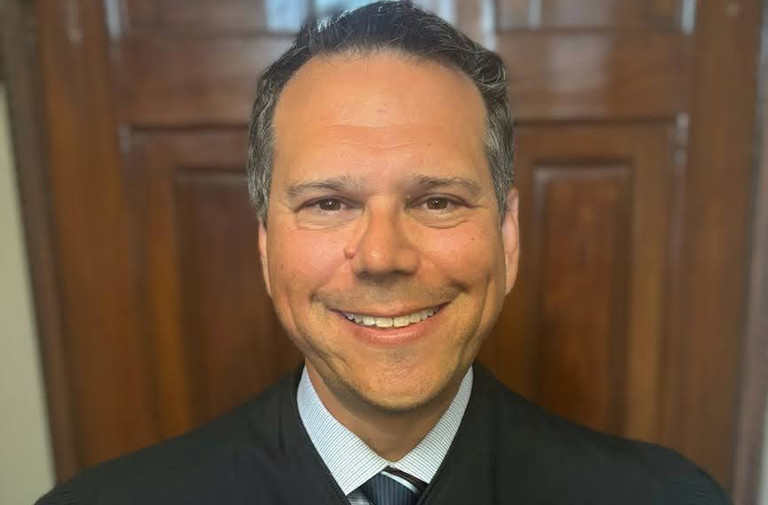In a sharp rebuke to chemical giants Syngenta and Chevron, a Philadelphia judge has dismissed their late-stage attempt to scatter hundreds of paraquat lawsuits across the country. The ruling, delivered on July 18, 2025, keeps over 900 cases centralized in Pennsylvania’s Court of Common Pleas, paving the way for faster trials amid mounting claims linking the herbicide to Parkinson’s disease.
This decision underscores the growing momentum in paraquat litigation, where plaintiffs allege the companies failed to warn about the product’s neurotoxic risks. As cases pile up nationwide, U.S. courts are grappling with one of the largest toxic tort battles in recent history, with implications for farmers, regulators, and public health.
Background on the Paraquat Litigation Surge
Paraquat, a potent weed killer used extensively in U.S. agriculture, has faced intense scrutiny for its alleged role in causing Parkinson’s disease—a debilitating disorder affecting over 1 million Americans. The Environmental Protection Agency (EPA) continues to approve its use, despite bans in more than 60 countries, including the European Union.
Lawsuits exploded after studies, including those from the National Institutes of Health, linked chronic exposure to elevated Parkinson’s risk. By September 2025, more than 5,900 federal cases are pending in a multidistrict litigation (MDL) in Illinois, while state courts handle hundreds more. Philadelphia has emerged as a hotspot, with its docket swelling to over 1,136 cases, drawn by the city’s track record in mass torts like opioids and Roundup weedkiller suits.
Plaintiffs, often farmers or applicators from across the U.S., claim Syngenta and Chevron (which owns a paraquat patent) concealed dangers while profiting billions. The companies deny causation, arguing scientific evidence is inconclusive and that labels already warn of risks.
The ‘Daft Suggestion’ and the Judge’s Ruling
At the heart of the latest drama: Syngenta and Chevron’s July 2025 motion to dismiss or transfer over 900 cases involving non-Pennsylvania residents. The defendants argued the court was overwhelmed and that out-of-state plaintiffs should litigate locally, potentially delaying resolutions.
Philadelphia Judge Joshua Roberts rejected the bid outright, labeling it “a daft suggestion” in his opinion. He accused the companies of “cherry-picking” cases years into the program, just as trials loomed, and failing to prove any real burden on the court. “Defendants have utterly failed to present a convincing case,” Roberts wrote, emphasizing Pennsylvania’s history of efficiently managing complex dockets.
This isn’t the first jurisdictional skirmish. In September 2024, the Pennsylvania Superior Court upheld Philadelphia’s venue for similar claims, rejecting Syngenta’s bid to oust over 600 cases. Roberts’ ruling ensures the mass tort program—complete with streamlined “short form” complaints—remains intact, allowing new filings to proceed swiftly.
Key Developments in Paraquat Cases
Philadelphia’s paraquat program is accelerating toward trials. The first bellwether case, testing key evidence, is now set for June 2025 after a two-month delay. Fact discovery wraps by March 2025, with expert reports and summary judgment motions due in August.
Federally, the Illinois MDL hit roadblocks: In April 2024, Judge Nancy J. Rosenstengel excluded a pivotal causation expert, dismissing four bellwether cases. New trials are slated for October 2025, but plaintiffs have appealed, and discovery continues on 10 replacement cases.
Settlement talks simmer. Syngenta inked a confidential master agreement in 2021 for select claimants, and recent reports hint at payout schedules emerging within 60-90 days—potentially $100,000 to millions per case, based on exposure and damages. Those opting out can pursue trials, where Philadelphia juries have awarded nine-figure verdicts in analogous suits.
In California, state-level cases advance, with a judge excluding another expert in December 2024 but allowing others to proceed.
Expert Opinions and Public Reactions
Legal experts hail the ruling as a victory for efficiency. “Philadelphia’s framework is battle-tested; scattering cases would grind justice to a halt,” said a toxic tort attorney not involved in the litigation. Plaintiffs’ counsel, including co-lead in Philadelphia, praise Roberts for prioritizing victims over corporate tactics.
Public sentiment runs hot. On social media, Parkinson’s advocates decry paraquat’s persistence, with hashtags like #BanParaquat trending amid calls for EPA reform. Farmers’ groups express relief at centralized proceedings, fearing fragmented fights would drain resources. Defendants’ supporters, including agribusiness lobbies, decry “forum shopping” but face uphill battles as science mounts.
One affected plaintiff, a retired Iowa farmer, told Reuters: “We’ve waited years for answers. This keeps our fight alive.”
Broader Impacts on U.S. Readers
This saga reverberates beyond courtrooms, hitting America’s heartland economy and health landscape. Agriculture employs 2 million Americans, many exposed to paraquat on vast farmlands. A potential settlement wave could inject billions into rural communities, funding medical care and lost wages for Parkinson’s patients—whose treatments cost $50 billion yearly nationwide.
Politically, it pressures the EPA, with bipartisan bills like the Protecting America’s Farmland from Foreign Harm Act eyeing herbicide safety. For consumers, cheaper produce relies on such chemicals, but rising awareness may spur organic shifts or import bans, affecting grocery prices.
Lifestyle-wise, it spotlights environmental justice: Low-income and minority farmworkers bear disproportionate risks, echoing fights over glyphosate in Roundup cases. Tech angles emerge too, with AI-driven epidemiology bolstering causation claims.
Conclusion: Momentum Builds Toward Accountability
Judge Roberts’ dismissal of the defendants’ “daft” motion solidifies Philadelphia as paraquat litigation’s epicenter, ensuring hundreds of cases hurtle toward resolution. With trials on the horizon and settlements in sight, victims edge closer to justice against a herbicide tied to irreversible harm.
Looking ahead, expect fiercer Daubert battles over experts and possible EPA scrutiny. For those exposed, time ticks—statutes of limitations vary by state. As this unfolds, it signals a reckoning for agribusiness: Innovation must not eclipse safety. U.S. readers, especially in farming states, should monitor updates; compensation windows may close soon.
(Word count: 852)
SEO tags: paraquat lawsuit, paraquat Parkinson’s disease, Syngenta paraquat cases, Chevron herbicide litigation, Philadelphia paraquat ruling, daft suggestion judge, paraquat settlement 2025, toxic tort mass action, EPA paraquat ban, farmer Parkinson’s claims
